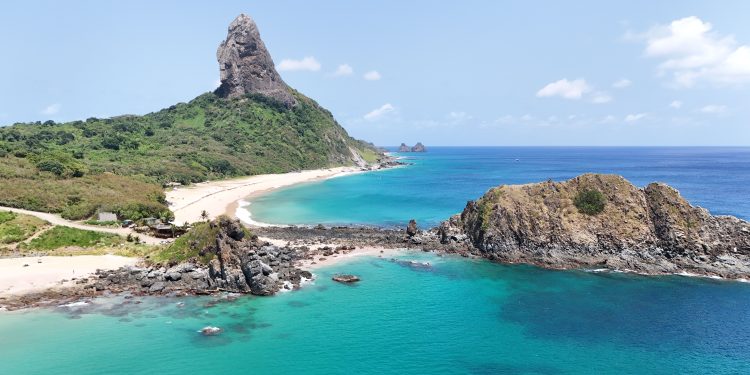Nestled just 225 miles northeast of Brazil’s Cape São Roque, Fernando de Noronha is more than just an archipelago—it’s a sanctuary of natural beauty and ecological preservation. Designated a UNESCO World Heritage site in 2001, this hidden gem is a symbol of how human dedication can protect and celebrate the planet’s most precious ecosystems.
Nature’s Paradise Built on Conservation
Unlike many other Brazilian islands, Fernando de Noronha is a beacon of sustainable tourism. Its untouched beaches, vibrant marine life, and pristine environment captivate nature enthusiasts, adventure seekers, and environmentalists alike. By prioritizing conservation, the island has flourished as a haven where ecological balance and human exploration coexist in perfect harmony.
Crystal Clear Waters, Teeming with Life
Step into the warm, nutrient-rich waters of Fernando de Noronha, with temperatures ranging from 79–84°F year-round. Remarkably clear, these ecosystems invite swimmers and snorkelers to immerse themselves in an underwater world of vividly colored coral reefs, tropical fish, and unique geological formations. Visibility often surpasses 160 feet, offering a breathtaking view of the island’s aquatic treasures.
Natural wonders like São José’s tidal pools provide safe, calm environments for all, illuminated by magical interactions of sunlight and water. Explore these hidden gems during low tide and relax on the golden sands of Praia da Baía dos Porcos, celebrated as one of South America’s most enchanting beaches.
A Model for Sustainable Tourism
First designated a Marine National Park in 1988, Fernando de Noronha has set the global standard for eco-tourism. Strict protection measures ensure that the archipelago’s unique ecosystems remain intact despite increasing interest from travelers. To preserve its beauty, the island carefully manages visitor numbers, allowing only a limited number of tourists at any given time.
Coral and algae dominate the underwater landscapes, creating habitats for diverse marine life like sea turtles, tropical fish, and spinner dolphins. The island is also a vital breeding ground for seabirds, cementing its status as an irreplaceable ecological hotspot.
Protecting the Planet’s Future
Fernando de Noronha stands as a reminder of our role in protecting Earth’s most fragile ecosystems. Every visitor contributes to the island’s conservation efforts, whether by treading lightly on its shores or supporting its preservation initiatives.
Take an active role in eco-tourism and inspire sustainability. Explore Fernando de Noronha now and join the mission to protect natural wonders for future generations.





















